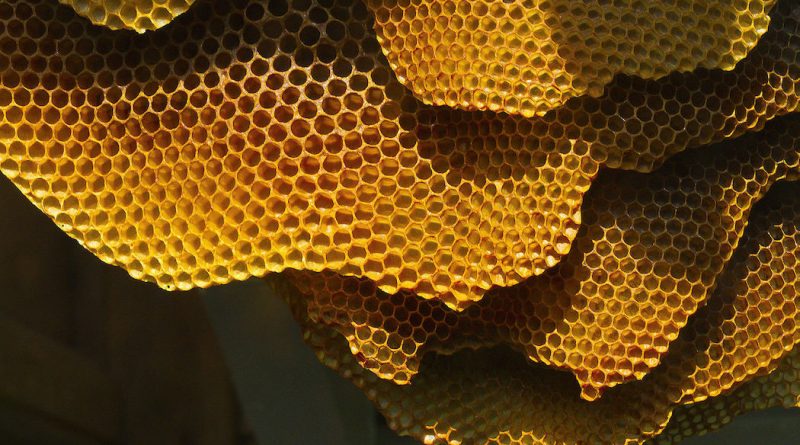First Beekeeping Mini Course Offered At UD
Katherine Kirchner
Contributing Writer
The sun is bright when honeybees journey out of their hive to collect pollen and nectar for their colonies. They fly to hundreds of flowers every day, pollinating these plants in exchange for the natural ingredient of honey.
The bees are not the only ones at work, however, as beekeepers all over Dayton spend this time meticulously working in the beehives.
Former police officer Mike Pittman is one of these beekeepers, or apiarist. During the day, Pittman collects honey and carefully checks the frames inside the hives, each capable of holding thousands of honeybees. As he carefully places the frame of whirring bees back into the hive, he expertly continues onto the next one.
Pittman just began his 10th year as a beekeeper in Dayton. This winter, Pittman taught the first beekeeping class offered at UD.
The six-week mini course allowed students to learn about the importance of honeybees and prepare them to become beekeepers in the future.

By teaching this class, Pittman hopes to show young adults the significance this insect has on their lives, something Pittman did not realize until he was retired.
Juniors Meaghan Lightfoot and Carter Spires were two of the students who chose to take this class. Lightfoot, an environmental biology major, chose to take Beekeeping after meeting Pittman at the Honey Festival in Kettering last fall.
“My biggest takeaway from Beekeeping 101 was how vital bees are to the human way of life and how our modern practices are impacting their survival,” Lightfoot said. “I have a much greater appreciation for bees!”
According to National Geographic, honeybees are declining as a result of anthropogenic practices such as pesticide usage, land development and global warming.
Spires is studying mechanical engineering with a sustainability, energy and the environment (SEE) minor and chose to take this course for a different reason.
“I took Beekeeping 101 because I wanted to learn how to bee keep so I could do it later in life,” Spires said. “I loved the class periods when Mike Pittman talked about how easy backyard beekeeping was, and I enjoyed learning about the bee’s flight patterns.”
The former police officer began his beekeeping journey in 2009 after watching a beekeeping program on the National Geographic Channel.
“It was so interesting that I got a book, ‘Beekeeping for Dummies,’” Pittman said. “After that I got another book called ‘Beekeeping Biology,’ and I couldn’t put it down. And then I decided ‘I’m gonna try to do this.’”
Pittman said the beekeeping mini course helps show students that honeybees do a lot more than just give us honey; they also pollinate much of our food. According to the National Resources Defense Council, honeybees contribute to the pollination of 30 percent of our food worldwide.

By recognizing honeybees as crucial to our survival, Pittman hopes Beekeeping 101 will persuade students to utilize their voice and put pressure on politicians to change practices that harm our honeybees, such as pesticide usage.
“If the honeybees disappeared, everything we think is important would be irrelevant,” Pittman said. “The food chain would break down worldwide. It would be every man for themselves.”
For those who want to help honeybees but who are unable to take Beekeeping 101, consider planting flowers. According to the Honeybee Conservancy, it is recommended to have multiple types of flowering plants in your garden, ensuring the honeybees have a constant food source.
The Honeybee Conservancy also stresses supporting local beekeepers: by buying their honey and other beeswax products (such as candles), apiarists can continue the work they are doing for these creatures and our environment.
For those looking to start their own hive, Pittman recommends joining the Greater Dayton Beekeepers, a network of beekeepers who meet once a month. More information can be found on the organization’s Facebook page.
Beekeeping 101 will be offered next semester to more students at UD. Since it is a single-credit minicourse, it can be taken for no extra cost.
“If it weren’t for the honeybees we wouldn’t be here,” Pittman said. “And there would be no honeybees in the U.S. if it weren’t for the backyard beekeeper.”
Cover photo courtesy of Wikipedia Commons.

